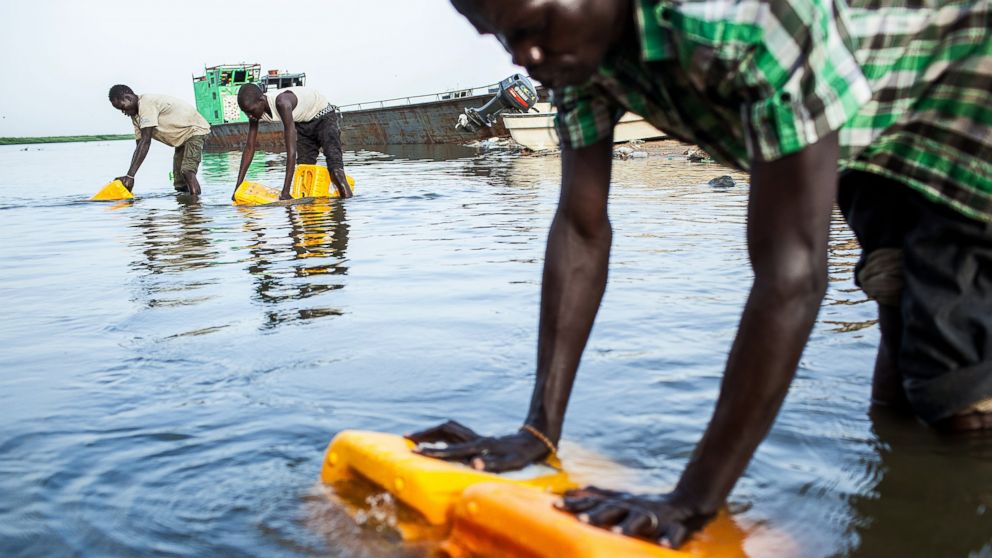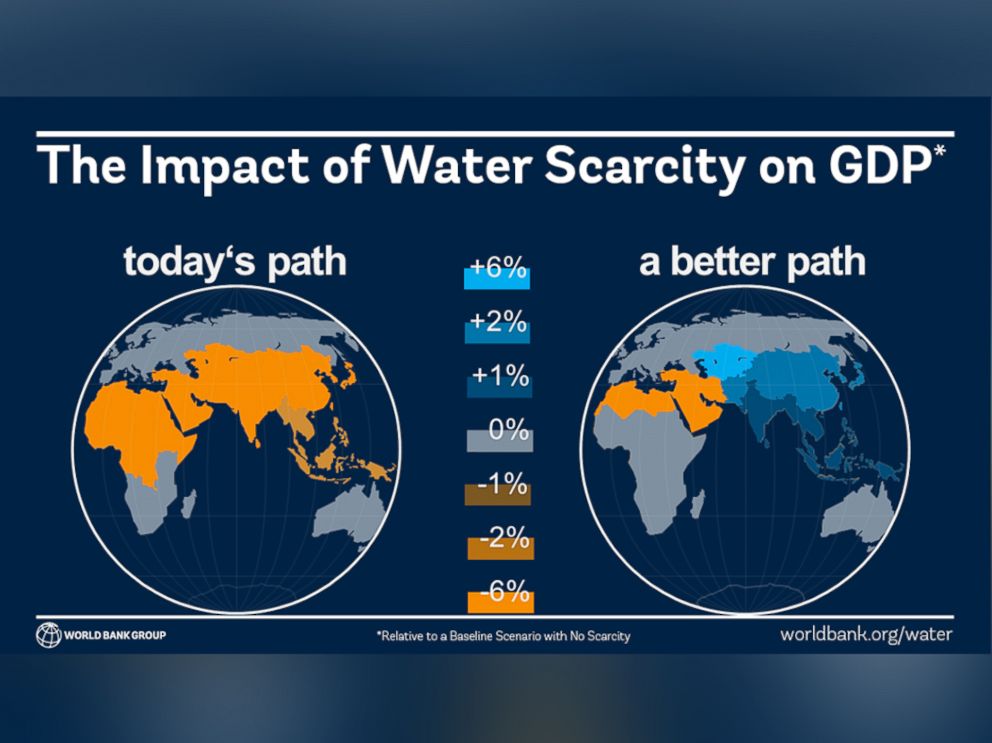Water Scarcity Can Lower GDP by 6 Percent in Some Regions, Report Warns
Growing populations and climate change are factors, the World Bank warns.

— -- Lack of water is not only a health issue for many regions of the world, it can have a huge economic impact, even lowering GDP by as much as 6 percent, according to a report issued today by the World Bank.
Factors like growing populations and climate change could reduce water availability in cities by as much as two-thirds by 2050, compared to 2015 levels, according to the report. Even rising incomes will cause further strain by creating a surge in water demand.
The effects will be far-reaching, even in regions in Central Africa and East Asia where it's now abundant, unless governments respond. Countries like China and India could be among the nations that have a 6 percent drop in GDP by 2050 without efficient water policies, the report states. The impact is greatest in places where water's already in short supply, such as the Middle East and the Sahel region in Africa, which includes countries already suffering from the effects of drought or war, such as Mali and Sudan.
The report, "High and Dry: Climate Change, Water and the Economy," explains that economic growth can be hampered by water-related losses in agriculture, health, income and property. In the next three decades, the global food system will require between 40 to 50 percent more water while municipal and industrial water demand will increase by 50 to 70 percent, according to a 2009 Water Resources Group report by the World Bank and business partners like McKinsey and Company and the Coca Cola Company.

The World Bank researchers used economic modeling to find that bad water-management policies can exacerbate the effects of climate change, while better managing resources can neutralize them.
Among the policies that could offer solutions are advancing technologies to increase water supply, such as waste-water recycling and desalination. The most widely used method to increase water supply is water storage through dams, the report states. Better planning and incentives, such as water permit allocation, giving users the right to "sell" or "rent" water, is another idea, the report states.
Unfortunately, the poor will disproportionately feel the effects of water mismanagement, the report states. About 800 million people, or nearly 78 percent of the world's poor, live in rural areas and rely on agriculture, livestock and fishing. More vulnerable communities are "likely to rely on rain-fed agriculture to feed their families, live on the most marginal lands which are more prone to floods, and are most at risk from contaminated water and inadequate sanitation," the report states.
The report warns that water insecurity could multiply the risk of conflict, as droughts can cause a surge in food prices and exacerbate migration and already dangerous situations.




